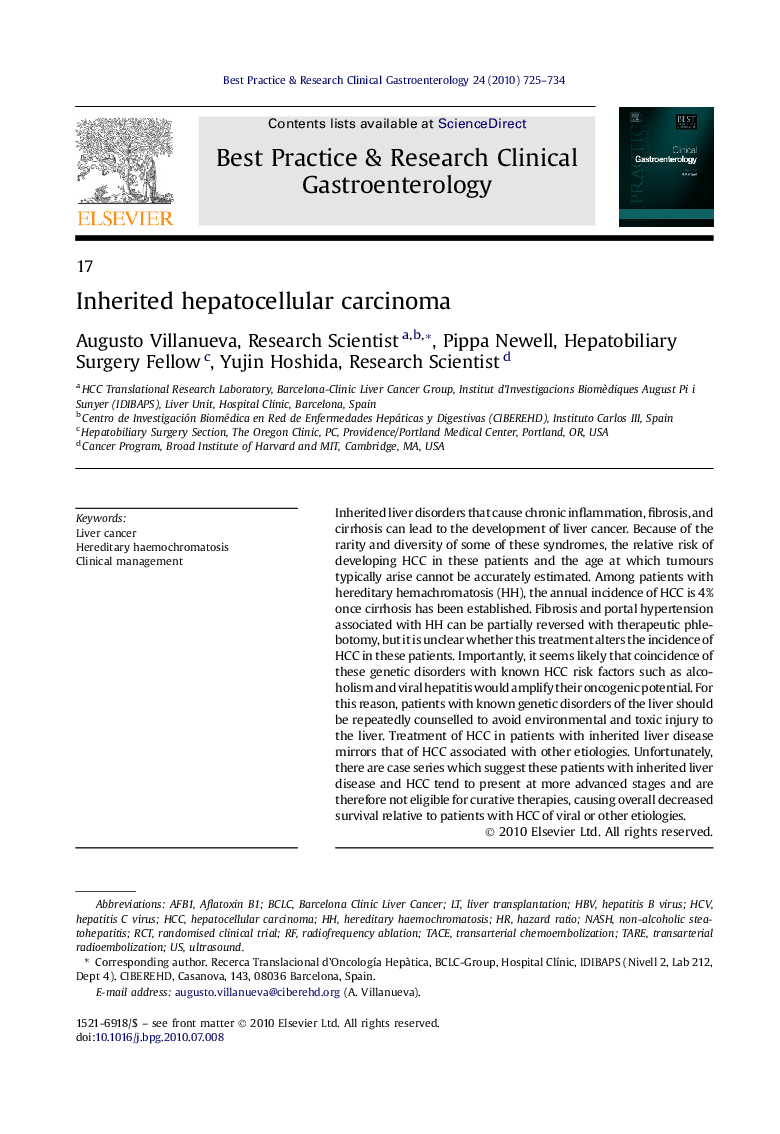| Article ID | Journal | Published Year | Pages | File Type |
|---|---|---|---|---|
| 3254298 | Best Practice & Research Clinical Gastroenterology | 2010 | 10 Pages |
Inherited liver disorders that cause chronic inflammation, fibrosis, and cirrhosis can lead to the development of liver cancer. Because of the rarity and diversity of some of these syndromes, the relative risk of developing HCC in these patients and the age at which tumours typically arise cannot be accurately estimated. Among patients with hereditary hemachromatosis (HH), the annual incidence of HCC is 4% once cirrhosis has been established. Fibrosis and portal hypertension associated with HH can be partially reversed with therapeutic phlebotomy, but it is unclear whether this treatment alters the incidence of HCC in these patients. Importantly, it seems likely that coincidence of these genetic disorders with known HCC risk factors such as alcoholism and viral hepatitis would amplify their oncogenic potential. For this reason, patients with known genetic disorders of the liver should be repeatedly counselled to avoid environmental and toxic injury to the liver. Treatment of HCC in patients with inherited liver disease mirrors that of HCC associated with other etiologies. Unfortunately, there are case series which suggest these patients with inherited liver disease and HCC tend to present at more advanced stages and are therefore not eligible for curative therapies, causing overall decreased survival relative to patients with HCC of viral or other etiologies.
